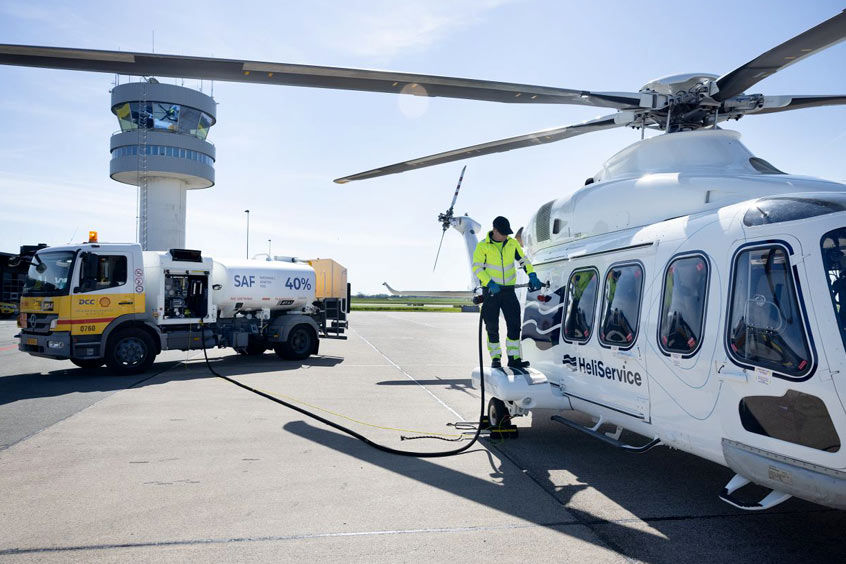Why visit ACE ’25?

In a pilot project scheduled to take place until September 2024, Germany-based HeliService International is to fly Leonardo helicopters on approximately 40 per cent SAF provided by DCC & Shell Aviation Denmark A/S at Vestas Wind Systems' wind farm in the Baltic Sea during 2024.
The operator will transport technicians and jack-up vessel crew to and from the Baltic Eagle wind farm during the construction phase of 50 offshore wind turbines.
CEO Oliver Freiland says: "Vestas' decision to use SAF for the crew change flights demonstrates our joint commitment to operate more sustainably in terms of CO2 reduction. HeliService's Leonardo helicopters, powered by engines from aerospace manufacturer Pratt & Whitney, are designed to operate with SAF already today."
A blend rate of 40 per cent SAF is close to the highest possible blend rate currently permitted, and it is the first time that SAF-fuelled helicopters with such a high blend rate are used for an entire part during the construction phase of an offshore wind farm operation. CO2 savings of approximately 32 per cent per flight are expected compared to using a standard helicopter powered by conventional jet fuel.
Sune Petersen, head of strategy and sustainability at DCC & Shell Aviation Denmark says: "The delivery of SAF to Roskilde airport, which will serve as a helicopter base during Vestas' pilot project, marks another milestone in our efforts to support the growing demand for alternatives to conventional jet fuel. It also marks an initial step towards introducing SAF into the fuel mix for helicopter services, not only in Denmark but also on a European scale."
Vestas aims to become carbon neutral in its own operations by 2030 and reduce emissions in its supply chain by 45 per cent per MWh generated. In relative terms, offshore wind projects experience higher CO2 emissions from construction and service operations than onshore wind projects due to the need of vessels and helicopters, and Vestas needs to develop new solutions for offshore wind to become carbon neutral.
Kieran Walsh, senior vice president and head of construction at Vestas Northern and Central Europe, says: "There is a significant need for more sustainable solutions during these wind farms' construction and operation phases. The potential for using SAF in offshore operations is high, and we are pleased to further exploit this potential."
Vestas will assess the impact of the SAF following the end of the pilot project.